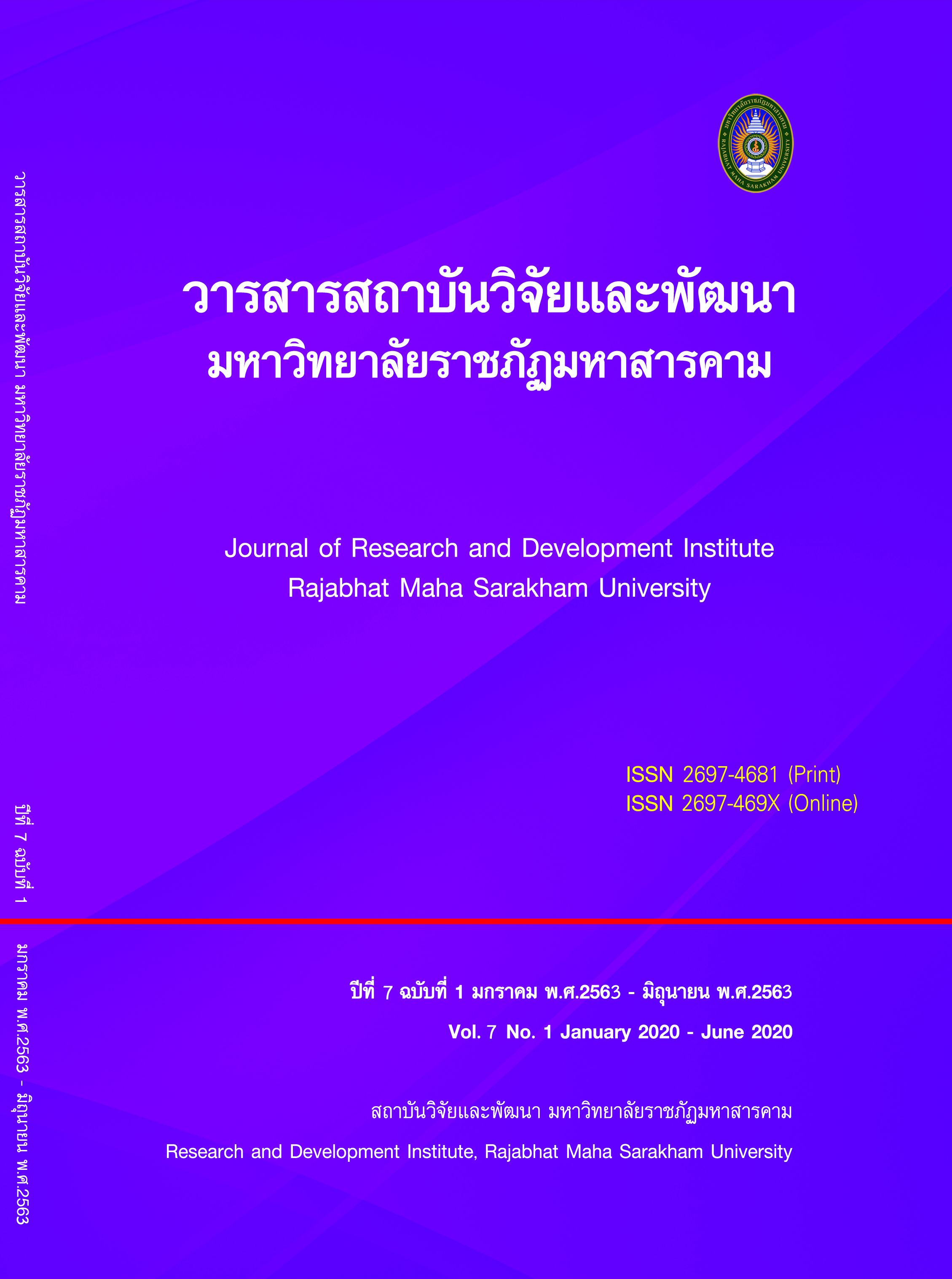The Influence of Military Coup 2014 on Public Trust Among Student in Thai Public Services: a Case Study of Khon Kaen University Student’s Attitude
Keywords:
Military Coup, Good Governance, Public TrustAbstract
This study aims to determine the influence of the military coup in 2014 on public trust among students in public service Thailand. This research was conducted on Khon Kaen University students with a total sample of 31 people. The research instrument used was a questionnaire through a purposive sampling technique. Regression analysis results show that the value of tcount is 15.737 > ttable 2.04523 means that there is a positive and significant influence between the relationship of the 2014 Military Coup with Public Trust in Public Services. While the value of r count 0, 946 or Pearson Correlations in this analysis shows the direction of a positive correlation, meaning that between the Military Coup and Public Trust in Public Services has a strong relationship.
References
Reference
Andhika, L. R. (2018). “Meningkatkan Kepercayaan Publik Terhadap Pemerintah Melalui Redesain Proses Kebijakan. JIP (Jurnal Ilmu Pemerintahan) : Kajian Ilmu Pemerintahan dan Politik Daerah, 3 (1), 24-42.
Budiardjo, M. (2010). Dasar-Dasar Ilmu Politik, edisi revisi, cet. IV. Jakarta: Gramedia Pustaka Utama.
Caiden, G. E. (1991). “What really is public maladministration?”. Indian Journal of Public Administration, 37 (1), 1-16.
Cheung, Anthony B.L. (2013). “Public governance reform in Hong Kong : rebuilding trust and governability”. International Journal of Public Sector Management (IJPSM), 26 (5), 421-436
Chitty, Tom. (2019). Why does Thailand had so many coups ?. CNBC. [Online] https://www.cnbc.com/2019/08/20/why-does-thailand-have-so-many-coups.html. [21 June 2020].
Fukuyama, F. (1995). Trust: The social virtues and the creation of prosperity (Vol. 99). New York: Free press.
Hetherington, M. J. (1998). “The political relevance of political trust”. American political science review, 92 (4), 791-808.
Nawawi, J. (2012). “Membangun Kepercayaan Dalam Mewujudkan Good Governance”. Jurnal Ilmiah Ilmu Pemerintahan, 1 (3), 19-29.
Rosyada, D. (2003). Pendidikan Kewargaan (Civic Education) : Demokrasi, Hak Asasi Manusia dan Masyarakat Madani. Jakarta: ICCE UIN.
Salminen & IkolaNorrbacka. (2010). “Trust, good governance and unethical actions in Finnish public administration”. International Journal of Public Sector Management, 23 (7),647-668.
Silalahi, U. (2011). “Kepercayaan Publik kepada Pemerintah Daerah Pasca Orde Baru”. JIANA Jurnal Ilmu Administrasi Negara, 11 (02), 167-179.
Sombatpoonsiri, J. (2017). “The 2014 military coup in Thailand: Implications for political conflicts and resolution”. Asian Journal of Peacebuilding, 5 (1), 132-154.
Sugiyono. (2017). Metode Penelitian Kuantitatif, Kualitatif, dan R&D. Bandung: Alfabeta.
Thompson, N. (2018). “Corruption in Thailand: Running Place”. The Diplomat. [Online]. https://thediplomat.com/2018/04/corruption-in-thailand-running-in-place/. [21 February 2020].
Van De Walle, S., & Six, F. (2014). “Trust and distrust as distinct concepts: Why studying distrust in institutions is important”. Journal of Comparative Policy Analysis: Research and Practice, 16 (2), 158-174.
Downloads
Published
How to Cite
Issue
Section
License
Articles that are published are copyrighted by the authors of the articles







